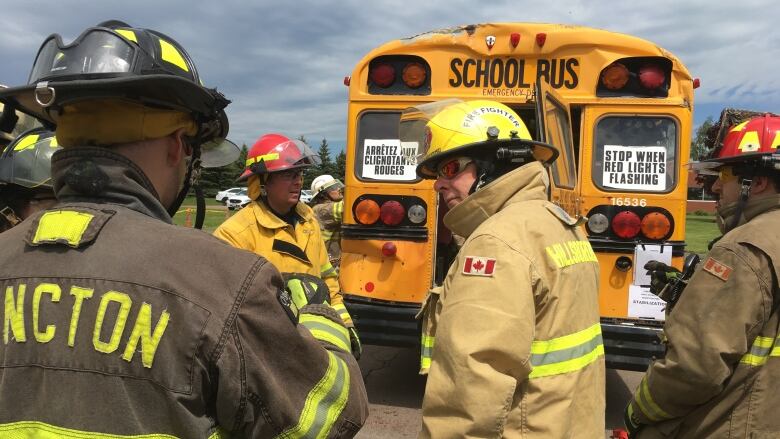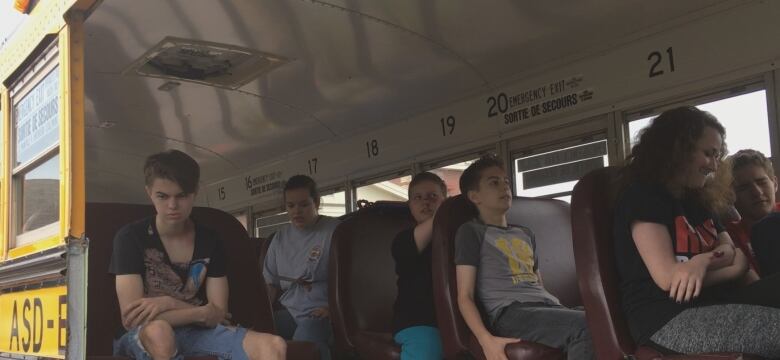N.B. firefighters work on bus crash rescue skills after Humboldt tragedy
'I don't know if you can ever fully be prepared until you actually face it,' instructor says

A major bus crash is a situation no firefighter wants to facebutneeds to be ready to handle,says a New Brunswick firefighter andinstructor.
"As we've seen in the media, out in Saskatchewan, the tragedy that happened out there, anybody, any community throughoutCanada has the potential for something like this to happen,"Mike Nicholson said Saturday.
With the memory of the Humboldt bus crash tragedy still fresh,firefighters fromthe South Eastern Firefighters' Association of New Brunswick got together in Riverviewto learn, review and practise their rescue skills.
- Bus rounded sharp curve before fatal crash
- Alberta hockey community mourns loss of local players in Humboldt Broncos crash
With stations set upand real buses, 50 firefighters from 18 different departments learned what to do in case of a crash.
"We want to be able to handle it if it should happenand that's where all this training comes into play," Nicholson said.

Some of the training involved how to stabilize the busand where and how to cut open a bus to get people out.
Children with fake injuries were used to teach participants how to triage the injured.
The association started planning the training session eight months ago. In April, 16 people were killed and 13 injured when a trailer truck collided with a bus carrying the Humboldt Broncos, ajunior hockey team.
"I don't know if you can ever fully be prepareduntil you actually face it, but certainly the training is going to help," said Nicholson.

The training began with firefighters arriving at the scene,assessing the bus while looking forhazards and then making sure the bus is stabilized.
Nicholson showed firefighters different ways of stabilizing the bus, depending on the situation.
After that, firefighters need to be able to get into the vehicleand help people out of it, he said. Participants practisedon an old school bus and an old transit bus.
"It's very important because itnot only applies to a bus, you can apply this to ... a transport truck, even a plane crash. The concepts are all going to be the same," Nicholson said.

Volunteer firefighter Luc Comeausays he wants to be ready in case he has to deal with the same kind of scenario.
"It's not going to happen often for surebut if it does once in your firefighter career, at least you'll have practice and you'll be ready," he said.
"You got to practise because if you don't practise, you're going to forget pretty quick."












_(720p).jpg)


 OFFICIAL HD MUSIC VIDEO.jpg)
.jpg)



























































































